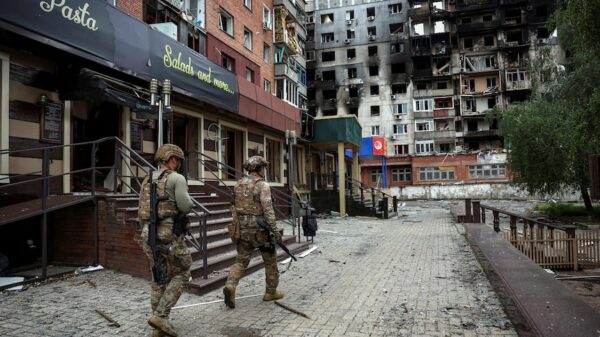The latest issue of The BMJ highlights alarming trends linking climate change and conflict to significant health risks. Experts warn that these two factors can produce synergistic effects, leading to complex challenges that threaten global health systems.
From 1995 to 2015, over 10 million child deaths were attributed to conflict, with women of reproductive age in high-intensity conflict zones facing mortality rates that are three times higher than their counterparts in peaceful regions. The findings underscore the urgent need to strengthen health systems to reduce vulnerability and support adaptation to climate-related changes.
Health Risks from Heat and Conflict
The impacts of climate change are not limited to direct fatalities. According to recent data, more than 60,000 heat-related deaths occurred across 32 European countries during the extremely hot summers of 2022 and 2024. Women were disproportionately affected, highlighting gender disparities in health outcomes during climate events.
In addition to direct health threats, the experts point out that climate and conflict hazards indirectly jeopardize health by damaging health infrastructure and disrupting supply chains. This disruption can lead to decreased access to food and essential services, escalating risks of undernutrition and the spread of infectious diseases.
The Need for Integrated Climate Action
The experts emphasize that climate action—both mitigation and adaptation—is crucial for addressing health risks associated with climate change. However, ongoing conflicts often divert resources from these initiatives, complicating efforts to implement effective climate strategies. For instance, after Russia’s invasion of Ukraine, the country saw a significant reduction in mitigation investments, as funds were redirected toward war efforts and reconstruction.
Military activities themselves contribute notably to greenhouse gas emissions, accounting for an estimated 5.5% of global totals, with the United States identified as the largest contributor. This under-reported source of emissions adds another layer of complexity to the interplay between health, climate change, and conflict.
Experts urge decision-makers at all levels, from local to international, to recognize the critical connections between these issues. They advocate for scaling up climate action in fragile and conflict-affected regions to promote sustainable development and peace.
One promising avenue for addressing these challenges is the Climate Conflict Vulnerability Index. This tool identifies areas where climate and conflict hazards intersect with social vulnerabilities, including health. By integrating climate action with conflict prevention and peacebuilding, stakeholders can disrupt the cycle of worsening climate impacts, declining health, and increasing instability.
In conclusion, experts assert that strengthening health systems must be central to efforts aimed at mitigating the impacts of climate change and conflict. Only through comprehensive strategies that address these interconnections can the global community hope to safeguard health and promote resilience in an increasingly challenging climate.



































































